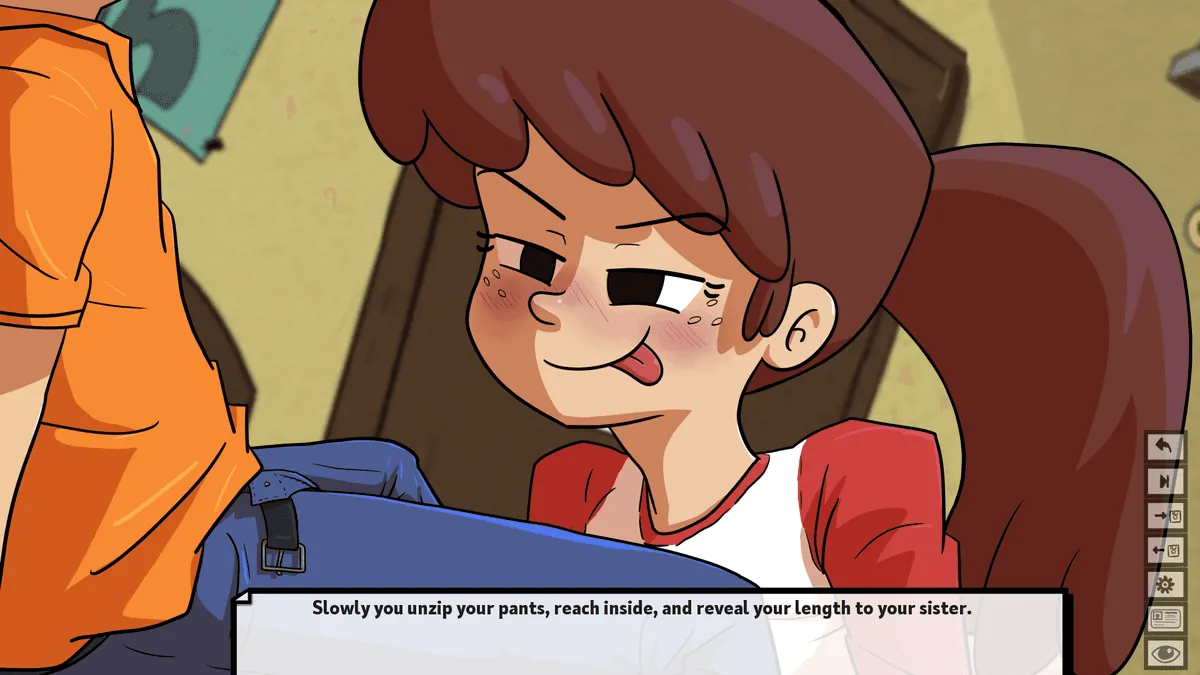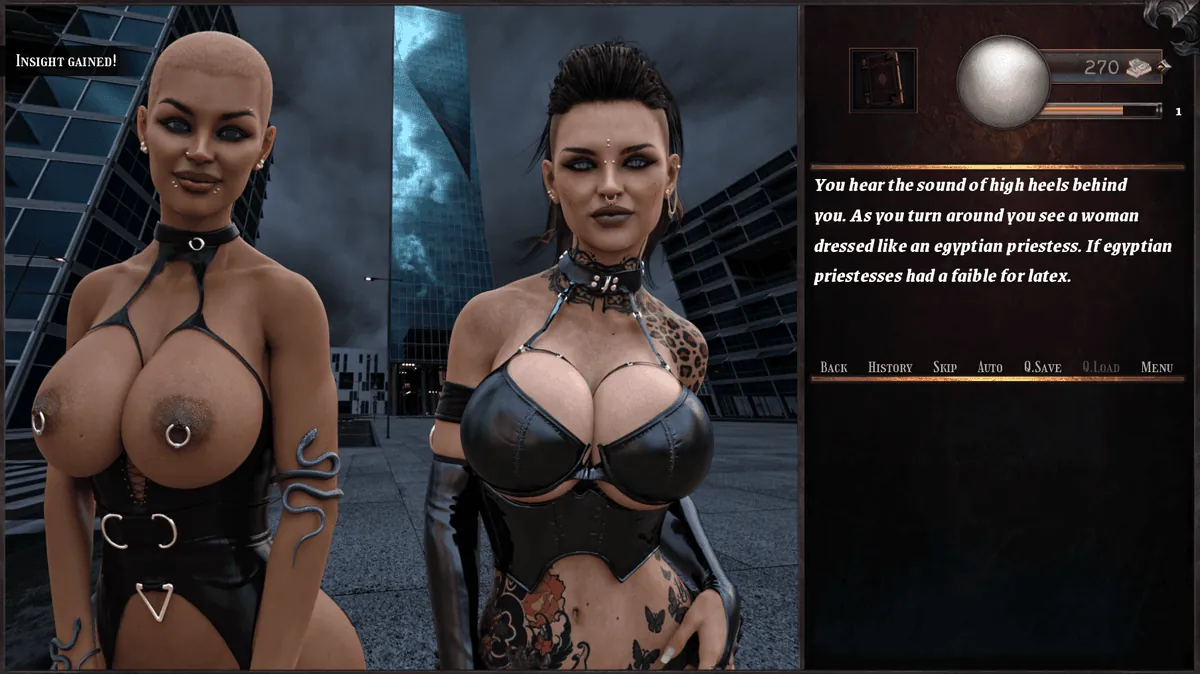
The Theater of Sinners
Play The Theater of Sinners
The Theater of Sinners review
Explore the immersive narrative and mechanics of The Theater of Sinners
The Theater of Sinners is a provocative visual novel game that dives deep into a dark world where morality blurs and complex characters face intense struggles. Centered around Paula and Rebeca, the game invites players to shape their personalities and influence their destinies through impactful decisions. This article explores the game’s storyline, characters, gameplay mechanics, and ongoing development, offering insights for both newcomers and fans eager to understand what makes this title compelling.
Unraveling The Theater of Sinners Storyline and Characters
Let me tell you about a game that completely reshaped how I view storytelling in interactive media. I was playing through yet another cookie-cutter RPG where choices were clearly labeled “good” or “evil,” when a friend insisted I try The Theater of Sinners. From the first moments, I realized this was something different. The Theater of Sinners story doesn’t hand you a moral compass; it smashes it on the ground and asks you to find your way in the dark. 🎭 This chapter is your guide through that compelling darkness, focusing on the fragile humans at its heart and the heavy themes they carry.
Who Are Paula and Rebeca?
If you want to understand the soul of this game, you need to understand its two central figures. They are not archetypes; they are beautifully, painfully human.
The Paula character The Theater of Sinners is a journey into a specific kind of privilege and prison. As the daughter of a powerful, influential figure, her life looks perfect from the outside. 🏛️ But that power is her gilded cage. I remember a scene early on where she’s pressured by her so-called “delinquent peers” to do something she knows is wrong. The game doesn’t just show her hesitation; it makes you feel the weight of her father’s expectations on one side and the desperate need for peer acceptance on the other. Her storyline is a masterclass in showing how a desire for belonging can lead you down paths you never imagined. The Paula character The Theater of Sinners is defined by this internal conflict, making her one of the most relatable figures I’ve encountered.
Then there’s the Rebeca character The Theater of Sinners. Where Paula’s world is one of suffocating privilege, Rebeca’s is shaped by stark deprivation and a deeply troubled upbringing. 🧩 Playing through her flashbacks felt intrusive, like I was witnessing something I shouldn’t. Her toughness isn’t a character trait; it’s a survival suit she welded onto herself over years of hardship. What’s fascinating is how the Rebeca character The Theater of Sinners interacts with Paula. They are opposites in background, yet mirrors in their internal struggles. The game brilliantly forces them into situations where their survival instincts clash, and you, as the player, are left to mediate a conflict with no easy answers.
Player Tip: Pay close attention to their dialogue choices. The game rarely signals which response is “correct,” forcing you to rely on your own gut feeling about what each character needs in that moment.
Supporting Characters and Their Roles
The world of The Theater of Sinners isn’t a barren stage with only two actors. It’s populated by a rich tapestry of individuals who range from the deeply endearing to the utterly detestable. 🤝 These Theater of Sinners characters are not mere quest-givers; they are active agents who shape the narrative based on your interactions with them.
I formed a real attachment to one character, an older shopkeeper who offered quiet wisdom, only to have a later decision of mine inadvertently cause him significant harm. The game doesn’t flash a “CONSEQUENCES” warning; it just shows the aftermath, and the guilt was entirely mine to sit with. This is the power of the Theater of Sinners narrative—your relationships feel real, and their outcomes carry emotional weight.
On the flip side, there are characters you will love to hate. A smug, manipulative figure from Paula’s social circle made my blood boil every time he appeared on screen. 🐍 Yet, the writing is so sharp that it occasionally offers glimpses into his own insecurities, blurring the lines just enough to make your hatred feel complicated. The Theater of Sinners characters are designed to challenge your snap judgments.
| Character Name | Role & Description |
|---|---|
| Paula | The privileged yet trapped protagonist, seeking identity outside her father’s shadow. |
| Rebeca | The hardened survivor, whose tough exterior hides deep-seated vulnerabilities. |
| Marcus | A charismatic but manipulative peer who leads Paula toward dangerous choices. |
| Elara | The wise shopkeeper who serves as an unintended moral anchor and voice of reason. |
| Mr. Albright | Paula’s powerful father, a distant figure whose presence looms over every decision. |
Themes of Morality and Corruption
This is where The Theater of Sinners truly separates itself from the pack. The core Theater of Sinners themes are not subtle suggestions; they are the very air the characters breathe. The most prominent is the exploration of morality in The Theater of Sinners. This isn’t about choosing between saving a village or burning it down. It’s about the smaller, more insidious choices. Do you protect a friend’s secret even if it enables their destructive behavior? Do you take a small, humiliating loss to avoid a larger, more violent conflict?
The game constantly presents you with dilemmas where every option feels tainted. I recall one sequence where I had to choose between humiliating Rebeca to gain social standing for Paula or defending her and becoming a social pariah myself. 😥 There was no “paragon” or “renegade” points pop-up—just the sinking feeling of my decision and its immediate, painful consequences. This is the brilliant, uncomfortable heart of morality in The Theater of Sinners.
Corruption is another central pillar. It’s not just the overt corruption of institutions or powerful figures like Paula’s father. It’s the personal, slow-burn corruption of your own values. 🦠 The Theater of Sinners themes often explore how easily one can justify a series of small moral compromises until they’ve lost sight of who they originally were. You might start the game with a clear idea of “right and wrong,” but the Theater of Sinners narrative is expertly crafted to muddy those waters, making you complicit in the very systems you might have initially judged.
The theme of humiliation is also wielded with devastating effect. It’s not played for laughs; it’s shown as a tool of control and a source of deep, lasting trauma. Watching a character be systematically broken down, or being forced to make a choice that will humiliate someone else, is one of the most powerful and uncomfortable aspects of the The Theater of Sinners story.
Ultimately, the Theater of Sinners narrative succeeds because it respects your intelligence. It doesn’t preach or provide easy answers. It presents a world painted in endless shades of gray and trusts you to find your own path, all while ensuring you feel the weight of every single step you take. 🙏 Your journey through this story will be uniquely yours, and it will likely stay with you long after you’ve put the controller down.
The Theater of Sinners offers a rich, immersive experience where player choices deeply affect the dark and complex narrative. With well-developed characters like Paula and Rebeca, and evolving gameplay mechanics, the game stands out in its genre. Community enthusiasm and ongoing development promise exciting future content. Whether you’re drawn to its storytelling or gameplay depth, The Theater of Sinners invites you to explore its morally grey world and shape its unfolding drama. Dive in and experience the journey firsthand.





















